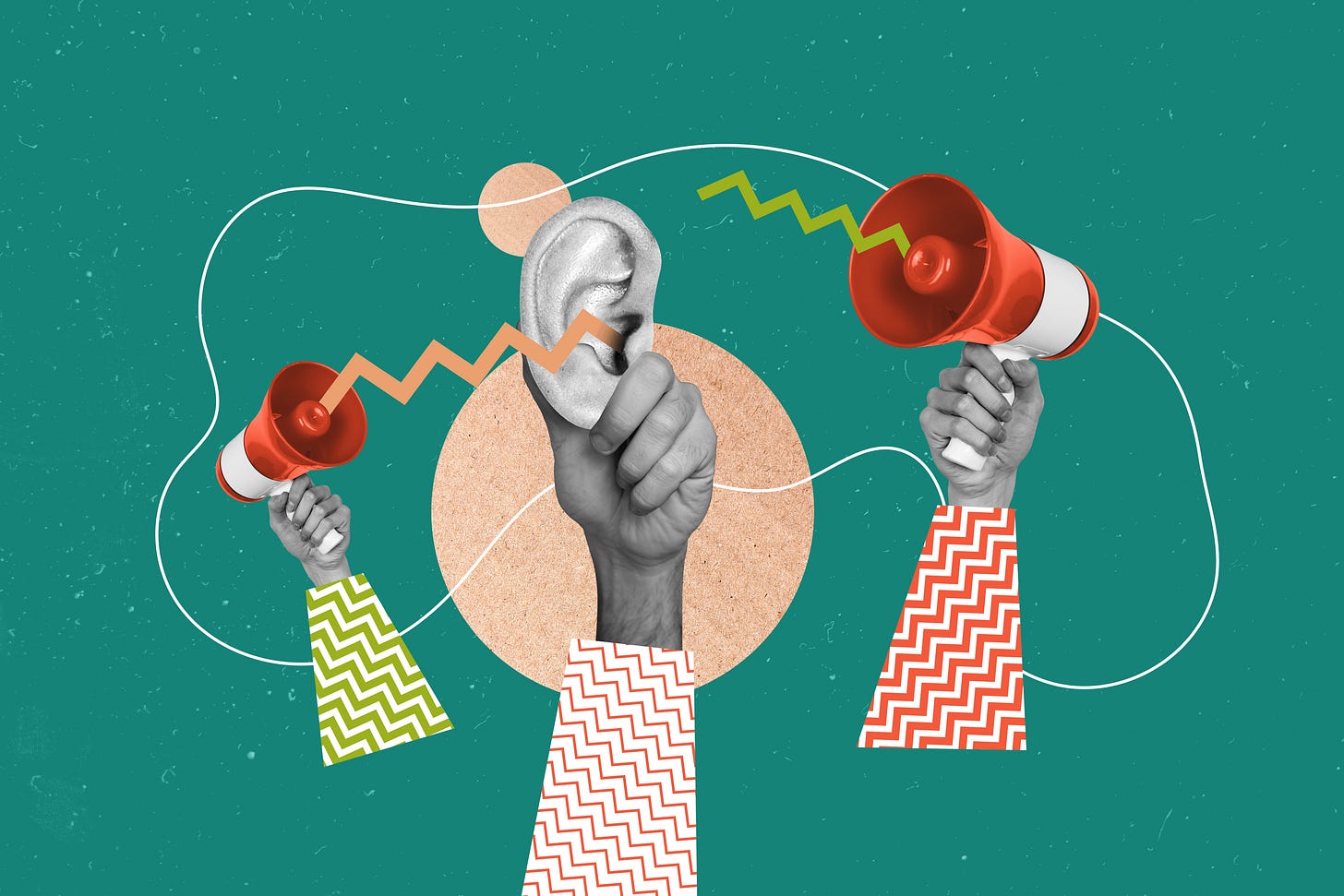The Professional Is Political Too
More than 50 years ago the second-wave feminist movement gave us the oft-quoted phrase, “The personal is political.”
Adopted by many movements, it insists that how we are treated, how we live in our homes and communities — these are not private matters. Nor individual issues to be solved at the micro level. These are societal issues. If not addressed in that context, they become systemic, with unequal, unjust status and outcomes cemented in policy, legislation, and regulation.
I argue that the same could be said about the workplace, that the professional is political. Data support that I’m not alone in thinking so. For years The Edelman Trust Barometer survey has indicated that people trust the corporate sector more than other institutions, and that they explicitly want companies to lead when it comes to facing global issues, even issues outside the organization’s direct business model.
Consumers want to purchase from companies that exhibit values that are in alignment with their own, and employees want to work for such companies.
While both groups are increasingly dominated by the Millennial and Gen Z generations, famous for tying their purchases and employment to social impact, those of us who are Gen X/Xoomers have our role to play too. We may not have come up in a professional world where making values-oriented decisions or demands was typical; we may be used to having to separate our personal, professional, and political selves, but a lot of us have also reached a stage where we feel we’ve earned the right to create an integrated self. We also rather famously have fewer fucks to give, or, as I like to say, paraphrasing Hank Green, “Lo, my field of fucks is barren.” It’s not just women, who have made it through the storm of peri-menopause to the other side; men, notably Green himself, have expressed the same.
I know countless people, once genially apolitical, who have been galvanized in the past 7-8 years, speaking more freely and publicly about their political opinions, positions, and preferences. Those are the people for whom I co-authored Road Map for Revolutionaries.
What we see happening in the political landscape, we see happening in the workplace. The issues of representation or income gaps, as two examples, are relevant in the halls of Congress, in the C-Suite, and in the break room.
Premium members: Join Jory and Elisa for this month’s live Office Hours tomorrow, Wednesday January 10, 12PM PT. Share how you think about the New Year…are you a resolution-maker? A habit stacker and tracker like me? Or do you set BHAGs (Big, Hairy, Audacious Goals). Get in the 2024 Goals hot seat and figure out how to achieve it! Link here. Public members, upgrade today to gain access to these Office Hours and all the other Premium member benefits.
I take the co-existence of the professional and the political personally. 20 years ago I had left corporate high-tech to consult. I also started political volunteering, including as the official blogger for my local political party’s county committee website. It was a presidential election year, so to be clear I was a partisan hack! Since my consulting was focused on the nascent market for organizational blogging, I linked all my blogs to one another…including the political blog.
Some of my colleagues were aghast. Wasn’t I running the risk of alienating “half my potential customer base?” To which I always had two stock responses:
I should be so lucky as to be able to capture 100% of my potential market if only I stayed quiet politically.
If someone wouldn’t hire me for my marketing expertise because they disagreed with me politically, well, it’s probably OK that we don’t work together. And in fact, while perhaps 50% of people might be put off by my political transparency, that means an equal number would instead be galvanized by it. We’d be “here for the vibes” before that was even a thing.
Over the years of overseeing programming for BlogHer, which presented omni-partisan viewpoints, I certainly learned how to communicate in a different way — goodbye to political hackery, hello to a commitment to curiosity-driven civil discourse, but I didn’t hide or erase my former online writing, and I don’t think anyone wondered what my general perspective was.
It was important to me that I could be me no matter which roles or engagements I took on. Did this limit me to only certain kinds of companies, organizations, partners, or clients (and them to me)? Yes, probably. Did I mind? No. That did reflect some economic privilege, particularly once I married someone with a stable income and benefits, but it’s how I operated pre-marriage while trying to launch a consulting business for the first time and while bootstrapping BlogHer, so it’s also a reflection of my priorities.
I prioritize this integration of the personal, professional, and political as a core value, and it therefore is my personal brand that I leverage, rather than a truth to hide.
The collision of employee and consumer expectations of companies and the historical preference to lock the political out of organizational strategy is no doubt causing some soul-searching for leaders everywhere.
But political events are affecting your employees and your customers every day. Political events impact our health and safety, the economy, education, technology’s role in our lives, and our very freedoms to pursue the lives we want now, and they impact what that will all look like in the (near) future.
I say yes, the professional is political. So, tell me, do you agree? And have you confronted the intersection of professional and political in your life and career?
All members: Join in on our last Open Thread
How’d you do maintaining those healthy holiday boundaries you set? Chime in on last week’s open thread and let us know.





